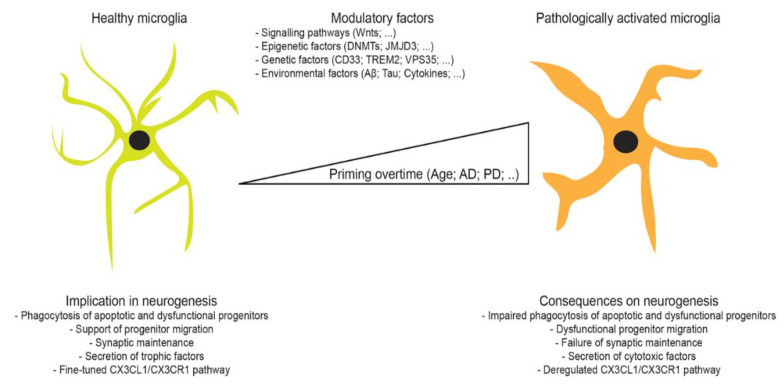Figure 1.
Microglia regulation of neurogenesis during lifespan: In the young healthy brain, microglia actively modulate neurogenesis via several supportive mechanisms that ensure the proper turnover of adult newly born neurons. A plethora of modulatory factors dictate microglial functions, and thereby influencing the rate of adult neurogenesis. Over age, microglia become less mobile, adopt an amoeboid-like phenotype, chronically express pro-inflammatory cytokines, and display an impaired phagocytic activity. The age-dependent establishment of a pro-inflammatory phenotype is accompanied by the release of neurotoxic cytokines, which impairs neurogenesis and synaptic integrity, and thereby contributing to neuronal loss and cognitive decline seen in Alzheimer’s disease (AD), and Parkinson’s disease (PD).

